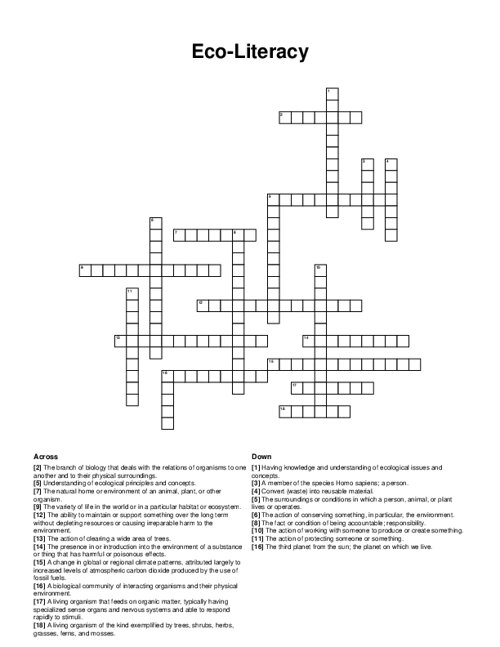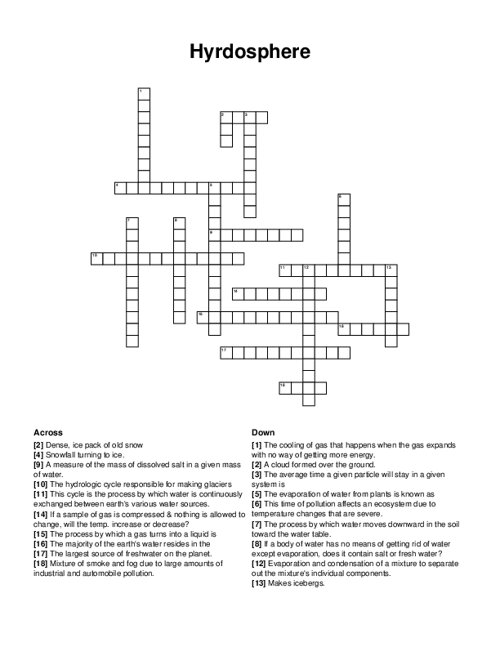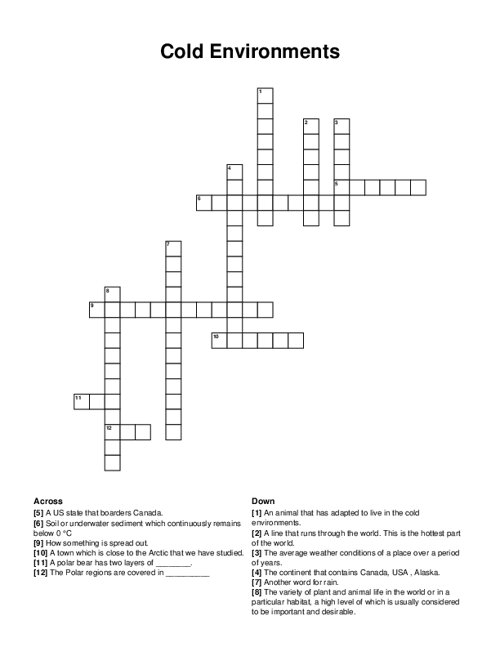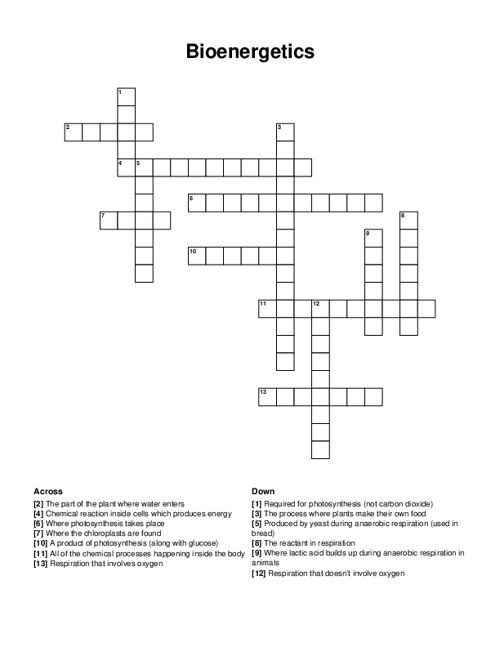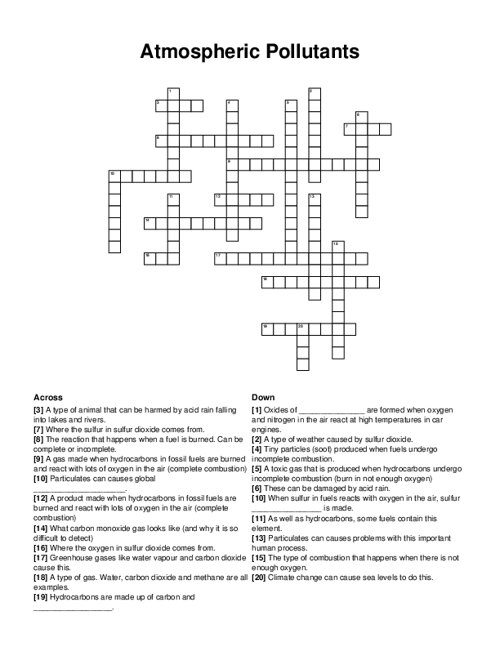Eco-Literacy Crossword Puzzle
Download and print this Eco-Literacy crossword puzzle.
Browse all Ecology / Climate Puzzles
QUESTIONS LIST:
- sustainability: the ability to maintain or support something over the long term without depleting resources or causing irreparable harm to the environment.
- environment: the surroundings or conditions in which a person, animal, or plant lives or operates.
- ecology: the branch of biology that deals with the relations of organisms to one another and to their physical surroundings.
- recycle: convert (waste) into reusable material.
- eco literacy: understanding of ecological principles and concepts.
- eco literate: having knowledge and understanding of ecological issues and concepts.
- collaboration: the action of working with someone to produce or create something.
- accountability: the fact or condition of being accountable; responsibility.
- ecosystem: a biological community of interacting organisms and their physical environment.
- conservation: the action of conserving something, in particular, the environment.
- protection: the action of protecting someone or something.
- deforestation: the action of clearing a wide area of trees.
- earth: the third planet from the sun; the planet on which we live.
- pollution: the presence in or introduction into the environment of a substance or thing that has harmful or poisonous effects.
- plants: a living organism of the kind exemplified by trees, shrubs, herbs, grasses, ferns, and mosses.
- animals: a living organism that feeds on organic matter, typically having specialized sense organs and nervous systems and able to respond rapidly to stimuli.
- humans: a member of the species homo sapiens; a person.
- biodiversity: the variety of life in the world or in a particular habitat or ecosystem.
- habitat: the natural home or environment of an animal, plant, or other organism.
- climate change: a change in global or regional climate patterns, attributed largely to increased levels of atmospheric carbon dioxide produced by the use of fossil fuels.
